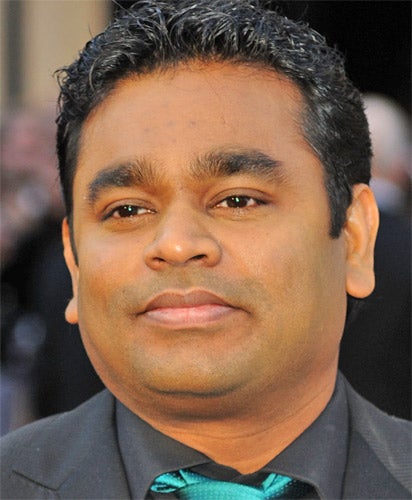The Week In Radio: High and low notes with the Mozart of Madras

Your support helps us to tell the story
From reproductive rights to climate change to Big Tech, The Independent is on the ground when the story is developing. Whether it's investigating the financials of Elon Musk's pro-Trump PAC or producing our latest documentary, 'The A Word', which shines a light on the American women fighting for reproductive rights, we know how important it is to parse out the facts from the messaging.
At such a critical moment in US history, we need reporters on the ground. Your donation allows us to keep sending journalists to speak to both sides of the story.
The Independent is trusted by Americans across the entire political spectrum. And unlike many other quality news outlets, we choose not to lock Americans out of our reporting and analysis with paywalls. We believe quality journalism should be available to everyone, paid for by those who can afford it.
Your support makes all the difference.Where would radio be, without the probing interview? Television may grab the headlines, as exemplified recently in a fabulous retrospective of John Freeman by Sue MacGregor, by making politicians cry or asking them the same question 14 times. But radio has the talent, intelligence and above all the time to make windows in men's souls. It's the intimacy of the radio studio that draws out the lurking childhood misery or the tension between the public and the private face. Which was why I lamented the demise of In the Psychiatrist's Chair and why I'll also miss On the Ropes, which is being axed in October on Radio 4 to make way for more science.
There's a crying need for this kind of in-depth slot. John Humphrys, on Today, probes relentlessly, but it's hardly the place you want to open up about your addictive personality or sexual predilections. In On the Ropes, Humphrys is a kinder, gentler beast, who wears kid gloves and rarely interrupts. Normally, that technique works well for people discussing their life-changing moments, yet we could have done with a little more prodding in this week's interview with Max Mosley, the former F1 boss who won a privacy action against the News of the World over claims of a "Nazi orgy".
Mosley is a psychiatrist's dream. Being the son of Hitler fan, Diana Mitford, was good practice for surviving stigma, though he said his father, Sir Oswald, "never admired Hitler, quite disliked him, only met him twice and thought he was over the top". When the newspaper story broke he felt inspired to tackle one of the media truths of our age. "Everything you've worked for is pushed to one side by something that's actually a tiny part of your life and blown up to be something that almost defines you." But perhaps because he is intelligent, or accustomed to public interest in his life, Mosley has effectively shrunk himself. It's hard to pick past the facade. He has decided that the best approach is to be absolutely up front about sex: "To me sex is private and people do very strange things," and finds that this deflects questions very effectively. Curiously, it was what he didn't say that was most revealing. When discussing his wife's reaction, he remarked: "Embarrassing isn't the word... and then I've got two grown-up sons," before correcting himself, "had two grown-up sons." It was only later that Humphrys probed the death of his son, to which Mosley conceded: "He had significant drug problems and I've no doubt it made his situation worse, but I don't blame myself." I wanted to know how his son's shame might have compared to Mosley's own experience as the son of a vilified Nazi sympathiser, but Humphrys didn't ask.
Interviews don't come much more high profile than that in Radio 2's The Mozart of Madras, which secured a rare audience with global superstar A R Rahman. Don't say "A R who exactly?" because A R Rahman can't leave home in India without being pursued by fans and is the world's most prolific film music producer, with Slumdog Millionaire to his credit. This week he was up for an Oscar for Danny Boyle's 127 Hours, so Boyle got him to talk. Which should have been great, except that A R is exceptionally softly spoken and self-effacing. He loves Tufnell Park because, "back at home I can't go out in the street, but in London I can take walks and be myself". Becoming a Sufi Muslim liberated him, because: "I stopped drinking, have no social life, nothing, just sit in a studio and make music." He is, Boyle concluded: "A genius composer with the ego of a dormouse; a man who likes to let his music do the talking." Fair enough. But to a good radio interviewer, surely that's the challenge?
Join our commenting forum
Join thought-provoking conversations, follow other Independent readers and see their replies
Comments